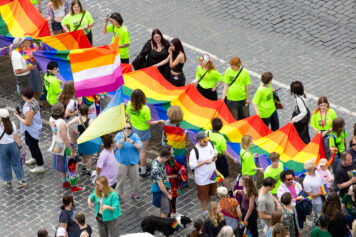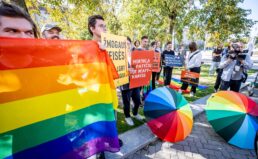“When marriage equality was adopted in Estonia, life went on, society did not collapse – it simply became a little more equal,” said Christian Veske, Estonia’s Commissioner for Gender Equality and Equal Treatment. In an interview with LRT.lt, he said marriage equality brought same-sex couples not only legal security but also emotional support and a sense of equality.
Veske said his motivation to work in the field of equality stemmed from his own childhood experiences. He grew up in a small Estonian town and, although his family was open and supportive, he faced bullying at school because of his sexual orientation.
“I grew up in a very loving home; my parents were always very progressive. But at school, I experienced a lot of bullying – the kind many gay or trans kids go through. It was a difficult time for me, but those experiences laid a strong foundation for the future and helped me understand that we need to work towards creating a better environment for children to grow up in,” he said.
After working in Estonia for a while, Veske moved to Vilnius, where he lived and worked for nine years. “Vilnius and Lithuania are, and always have been, very close to my heart. Lithuania is my second home,” he said.
It was in Vilnius that Veske took part in his first Baltic Pride march. Held in 2010, the event drew around 350 participants, while police were forced to restrain twice as many counter-protesters.
More than 800 officers were deployed, including mounted police. Protesters threw stones and smoke bombs and shouted insults.




